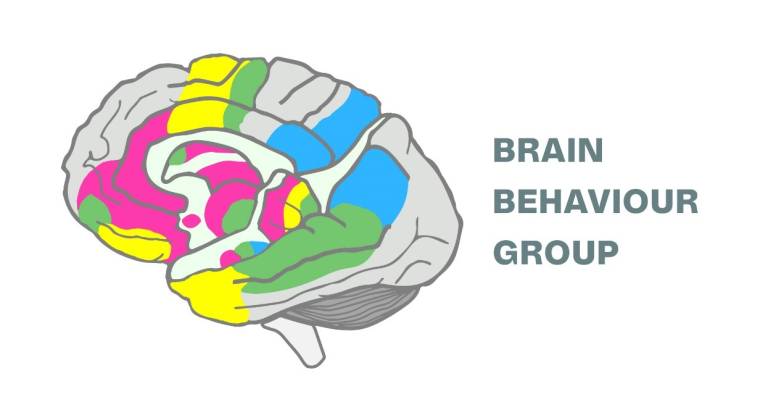
Our research group investigates how brain pathology (the spread of abnormal proteins through neural circuits) produces symptoms of abnormal brain function (changes in behaviour) in major dementias - particularly Alzheimer’s disease, frontotemporal dementia and the primary progressive aphasias. Understanding and measuring how neurodegenerative brain pathology is linked to symptoms will be key to earlier dementia detection, diagnosis, prognosis and ultimately, treatments. We consider ourselves ‘dementia physiologists’ - much of our work is concerned with identifying new, dynamic physiological mechanisms and biomarkers of dementia, to span the gap between brain protein markers and measures of brain atrophy and cognitive decline.
Our core research focus is the processing of complex sounds, such as speech, voices, music and auditory scenes: such sounds are fundamental to daily life functioning, communication and well-being, and make intense processing demands on the brain that sensitively expose the effects of neurodegenerative pathologies. Around this core, we pursue other interconnected research themes in nonverbal (including socio-emotional) cognition, homeostatic (autonomic and sleep) function, cerebral plasticity, neuroaesthetics, clinical staging of primary progressive aphasia and development of cross-linguistic, culture-fair tests of brain hearing and communication function.
Our vision for this work rests on three broad, inter-related aims:
- to identify new physiological ‘readouts’ of neurodegenerative protein effects and their real-world functional impact in an individual person living with dementia - including ‘proximity markers’ that herald the imminent clinical onset of dementia
- to guide the development and targeting of better, more clinically relevant diagnostic tools and treatment strategies
- to assess rapidly whether treatments are working and to harness the brain’s residual capacities for adaptation and repair (‘plasticity’)
All of our work is clinically focused and directly informed by meeting and caring for people living with dementia. Without them, none of our research would be possible – they work with us, teach us and inspire us.
Follow us on Social Media:
- X (previously Twitter): @dementiaBBG
- Instagram:@dementiaBBG
- Linktree: linktr.ee/dementiabbg
- Collaborations
We collaborate with a number of other research groups at UCL, nationally and internationally, to harness their perspectives and expertise and to build awareness of the importance of dementia among basic scientists. Our collaborators include:
- Professor Doris-Eva Bamiou, Ear Institute, UCL
- Dr Marc Busche, UK Dementia Research Institute, UCL
- Professor Maria Chait, Ear Institute, UCL
- Dr Anthipa Chokesuwattanaskul, Chulalongkorn University, Thailand
- Professor Sebastian Crutch, Dementia Research Centre, UCL
- Professor Sofia Eriksson, Department of Clinical and Experimental Epilepsy, UCL and National Hospital for Neurology and Neurosurgery, Queen Square
- Professor Nick Fox, Dementia Research Centre, UCL
- Professor Tim Griffiths, Faculty of Medical Sciences, Newcastle University
- Dr Emma Holmes, Division of Psychology and Language Sciences, UCL
- Professor Zane Jaunmuktane, Division of Neuropathology, UCL
- Dr Diego Kaski, National Hospital for Neurology and Neurosurgery
- Dr Ashvini Keshavan, Dementia Research Centre, UCL
- Professor Charles Marshall, Wolfson Institute of Population Health, Queen Mary University of London
- Dr Salvatore Mazzeo, University of Milan, Italy
- Dr Naaheed Mukadam, Division of Psychiatry, UCL
- Professor Patrick Naylor, Department of Electrical and Electronic Engineering, Imperial College London
- Dr T. Rune Nielsen, Danish Dementia Research Centre, University of Copenhagen
- Professor Jonathan Rohrer, Dementia Research Centre, UCL
- Professor Aaron Seitz, University of California Riverside, USA
- Professor Jonathan Schott, Dementia Research Centre, UCL
- Dr Andrew Sommerlad, Division of Psychiatry, UCL
- Prof Nick Tyler, Department of Civil, Environmental and Geomatic Engineering, UCL
- Dr Janneke van Leeuwen, The Thinking Eye
- Dr Jochum van’t Hooft, Amsterdam University Medical Center, Netherlands
- Dr Anna Volkmer, Division of Psychology and Language Sciences, UCL
- Dr Keir Yong, Dementia Research Centre, UCL
- Dr Peter Zeidman, Wellcome Centre for Human Neuroimaging, UCL
- Funding
- Alzheimer’s Society
- Alzheimer’s Research UK
- Dunhill Medical Trust
- Royal National Institute for Deaf People
- National Brain Appeal (Frontotemporal Dementia Studentship in Memory of David Blechner)
- NIHR
- NIHR UCLH Biomedical Research Centre
- UCL Research Excellence Scholarship
- Wellcome Trust
 Close
Close

